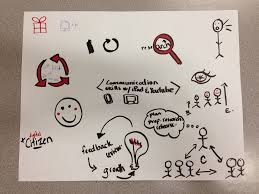Inspiration and motivation are often used interchangeably. As a
speaker, you must understand the difference in order to achieve the
full effect of what you are trying to convey.
An inspirational message typically takes the audience on a journey. It
often is a part of the individual speaker’s personal trials and tribulations.
The inspirational ride is driven primarily through an emotional connection
to the audience. However, motivational speeches carry with them a
take-away or a specific request of the audience. You’ll try to persuade the
audience to take some kind of action, whether to change their ways—
such as eating habits, for example—or to accomplish something, such as
running a marathon. Simply sharing your own personal successes with
an audience is not being specific enough to motivate them to join in.
If you want an audience to be motivated, you need to tell them or
ask them to take a specific action. Staying with the example of eating
habits, you may want to ask the audience to start reading the labels
when they get home, counting calories against the recommended
intake, and incorporating the appropriate amount of fruits and vegetables
into their diets. You must convey specifics if you truly want to
motivate a positive change.
Thomas B. Dowd III’s books available in softcover, eBook, and audiobook (From Fear to Success only):
- Now What? The Ultimate Graduation Gift for Professional Success
- Time Management Manifesto: Expert Strategies to Create an Effective Work/Life Balance
- Displacement Day: When My Job was Looking for a Job…A Reference Guide to Finding Work
- The Transformation of a Doubting Thomas: Growing from a Cynic to a Professional in the Corporate World
- From Fear to Success: A Practical Public-speaking Guide received the Gold Medal at the 2013 Axiom Business Book Awards in Business Reference
- The Unofficial Guide to Fatherhood
See “Products” for details on www.transformationtom.com. Book, eBook, and audiobook (From Fear to Success only) purchase options are also available on Amazon- Please click the link to be re-directed: Amazon.com










